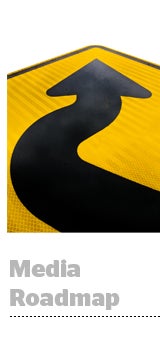 Oracle’s deal to acquire Responsys comes with a key question: What will Oracle’s future hold for digital advertisers?
Oracle’s deal to acquire Responsys comes with a key question: What will Oracle’s future hold for digital advertisers?
When Oracle snapped up Eloqua for $810 million last December, a chain reaction of subsequent purchases followed, from Salesforce.com’s acquisition of ExactTarget to Adobe’s Neolane buy mere months later. As competitors rush to build or acquire digital marketing stacks, Oracle is in a unique position to pull ahead on the digital advertising front.
AdExchanger asked Gerry Brown, senior digital marketing analyst at Ovum and Bill Wagner, CEO of marketing technology company StrongView, for their take on the strengths and weaknesses of the Oracle-Responsys deal.
On Oracle’s new (and existing) display capabilities.
GERRY BROWN: Eloqua has something called AdFocus, which is sold through their partner Bizo, a San Francisco-based company that has its own marketing automation software suite [and retargeting capabilities]. Oracle’s current position, I would suggest, for display is not strong [on its own]. They bring their partner Bizo into deals and if you’ve got a marketing automation platform, nowadays you need to be able to offer display as one of the multichannel options. So I think it’s a ‘covering all the bases’ sort of strategy and it is true that AdFocus was [part of] Eloqua before they were acquired by Oracle as I understand it.
What Responsys adds.
GERRY BROWN: They have been a little bit more aggressive [with display] for the reason that they’ve had this relationship with AppNexus, which provided them with a white label solution. Responsys is very good at data integration and integrating certain products and I think they saw AppNexus, with its open APIs and flexible technology, as the best RTB solution they evaluated on the market and integrated it into their stack. I think they do still rely on AppNexus to some degree from a technical perspective, but they have built up a services capability and they can sell it themselves and they do have some reference customers. From an Oracle perspective, it does assist them with that display piece of the puzzle, which wasn’t so strong using just Eloqua. They [Responsys] point to MetLife, a big customer that’s using display functionality in combination with email and SMS, but the honest truth is that most customers in marketing automation terms have not really embraced a full, multichannel strategy.
The holes Oracle is looking to fill.
BILL WAGNER: I think it’s very logical that Oracle bought Responsys, but I don’t think it’s primarily about bolstering its cloud offerings. I don’t think Oracle had a viable B2C marketing platform from any of their earlier acquisitions. They acquired Eloqua, which is like Marketo and with that they gained a B2B marketing platform but when Salesforce.com acquired ExactTarget, that gave Salesforce.com both a B2B and B2C marketing platform, which left Oracle at a disadvantage. I think it just so happens that they’re killing two birds with one stone.
If enterprise technology providers want to wade deeper into paid media and display.
GERRY BROWN: If you look at Responsys, they sensed an opportunity. They liked to be first to market and they got into display in a bigger way than Marketo and Eloqua earlier because they saw the growth. The intent of marketers in 2014 is definitely to get display onboard as part of their marketing automation platform. … I think there will be definite growth in the display advertising area. I think most businesses did what Eloqua did – under the covers, they kind of bought in to a display solution and distributed it through their channels but tended to want to have it as part of, ‘We can do multichannel across Web, display social and mobile,’ but didn’t really push it into their client base and sell it. That’s one of Responsys’ differentiators in the market. They were actively selling display-advertising capabilities as part of a multichannel solution this year, whereas none of the other big vendors have and the smaller ones who have it in their portfolio have not really been pushing it.
Roadblocks ahead for Oracle.
BILL WAGNER: I think despite this acquisition, it’s going to be a tough road for Oracle. I think companies like Oracle, IBM and SAP have very similar problems in that first and foremost, these are companies that don’t have history or DNA in the organization of marketing applications in any respect. At the same time, they also need to embrace the cloud given where the market’s going. It’s such a departure from who they are that I think it takes a long time.
In terms of what’s next, I think with this acquisition, they now have a viable B2C platform that allows for list-driven campaign-based marketing, but if you look at the market, it’s shifting to essentially a post-campaign marketing model driven by consumers who are constantly connected across channels and have very high expectations of brands. That shift has very big implications for marketing applications, such as real-time access to diverse data and the ability to engage consumers as individuals and frankly, the platforms, even the ones they’ve purchased, are not geared toward what’s to come. It’s about, look at where the market’s going and plan for that eventuality.
Leading the Marketing-Tech Pack? Oracle-Eloqua Marketing Cloud vs. Adobe Marketing Cloud.
GERRY BROWN: Compared to Adobe, if we’re talking about Web analytics, the Omniture piece is a very strong piece of technology. They have a lot of analytics around that and there are some that are part of campaign management. If you’re talking Web analytics, I would say Adobe has the edge, but if you’re talking analytics across the board, quite possibly Oracle has the edge because they have the Hyperion platform and industrial-class analytics.
On social, I would say Oracle has a very strong proposition there. Collective Intellect and Vitrue are a very powerful collection of software there, but I’d say Adobe has some pretty powerful software there, too. Both of them do have mobile capabilities. In terms of media optimization, Adobe has got the Efficient Frontier stuff, so the ability to report across multiple search capabilities, whether it’s Yahoo, Google, Baidu and this is where I’ve seen significant difference between Adobe and Oracle in that Adobe is very strong around Web analytics and Web management and the Eloqua piece is much more around campaign management and email and multichannel. They do have Fatwire, which gives Oracle some capability, but I don’t see that it matches up to Adobe’s strengths with the Efficient Frontier and Omniture acquisitions. Both companies now have campaign management. Neolane and Eloqua kind of cancel each other out in that department.














